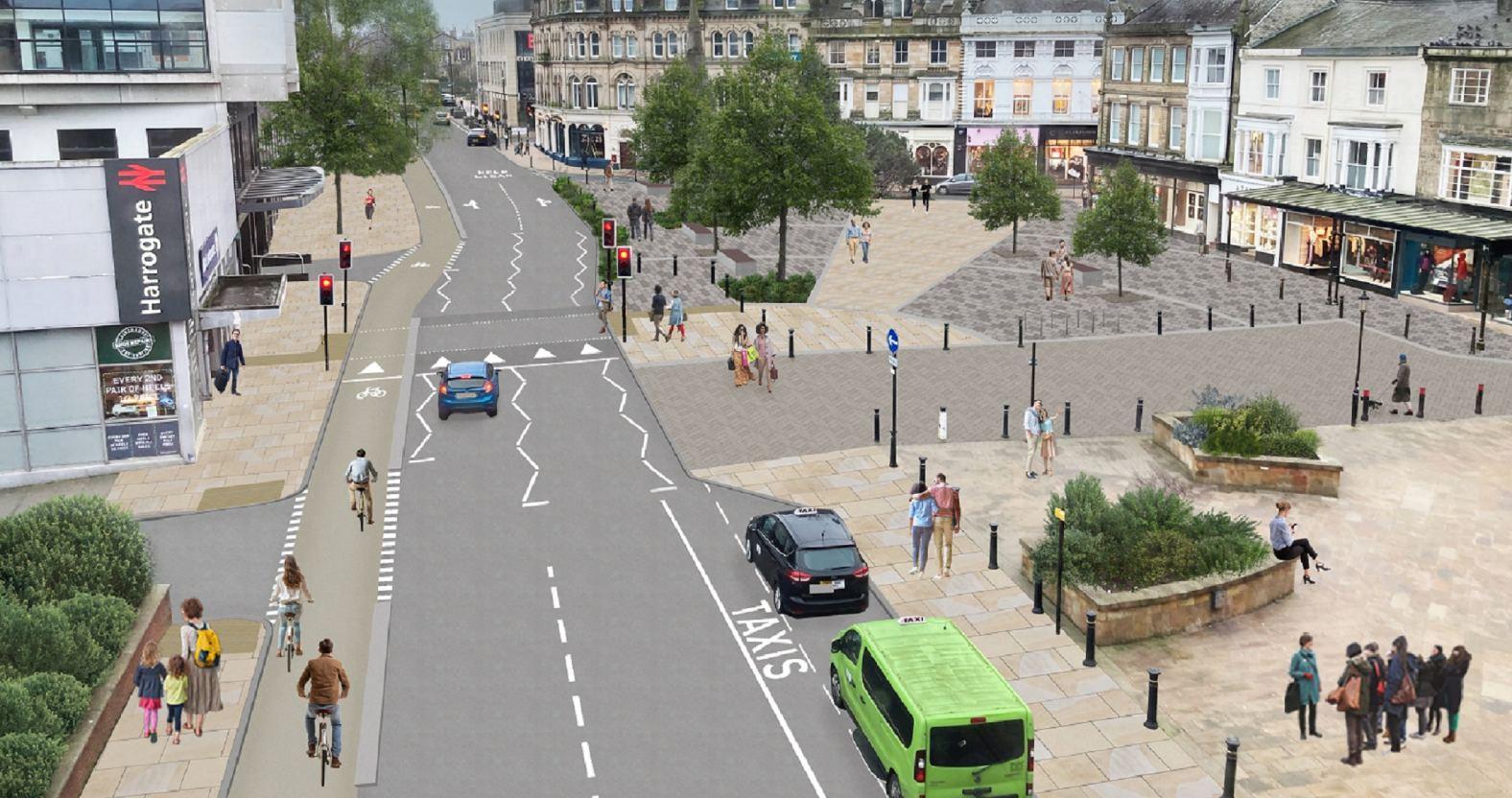Subscribe to trusted local news
If you are accessing this story via Facebook but you are a subscriber then you will be unable to access the story. Facebook wants you to stay and read in the app and your login details are not shared with Facebook. If you experience problems with accessing the news but have subscribed, please contact subscriptions@thestrayferret.co.uk. In a time of both misinformation and too much information, quality journalism is more crucial than ever. By subscribing, you can help us get the story right.
- Subscription costs less than £1 a week with an annual plan.
Already a subscriber? Log in here.
07
Aug 2025
Harrogate Station Gateway: Judge sets out reasons for rejecting legal challenge

A judge has set out his reasons for rejecting a campaign group’s legal challenge against the £14.6 million Harrogate Station Gateway scheme.
Judge Mark Ockelton, who presided over the case in Leeds, handed down a judgement on the matter this week.
The Get Away group, which was formed in opposition to the project, claimed North Yorkshire Council failed to consider the wider impacts of the multi-million pound project.
However, Judge Ockelton found in favour of the council on all grounds, which paves the way for the transformation of Station Parade, Station Square and the One Arch pedestrian tunnel.
The Stray Ferret has read his 72-paragraph judgment and summarises the key points below.
High court ruling
The two-day hearing held at Leeds Crown Court in April centred around the introduction of four Traffic Regulation Orders (TROs) in central Harrogate.
North Yorkshire Council’s executive agreed a resolution in November 2023 to “descope” the gateway scheme, by dropping elements such as pedestrianising part of James Street and reducing a section of Station Parade to single lane traffic.
The resolution included implementing Traffic Regulation Orders and additional public engagement.
The Get Away group argued that the orders were made irrationally and were effectively implementing part of the gateway scheme without any final decision being made.

A south facing visual of how Station Parade will look.
But, in his judgement, Judge Ockelton said he found some of the submissions made by campaigners, who were represented by planning barrister Victoria Hutton, to be “based on a partial view of that evidence, or a misreading of it or a misunderstanding of it”.
During the hearing, Ms Hutton said the introduction of the Traffic Regulation Orders in January 2025 started to implement part of the scheme and were an “irrational” decision and "unlawful" because there was no certainty that the wider project would go ahead.
Judge Ockelton disagreed with the argument. He said:
The position at the date of this application and proceedings is that there is nothing comprising merely a part of the scheme that is in force; and there is no decision or intention that there should ever be a time when only part of the scheme is in force.
There cannot be anything remotely irrational in preparing for the implementation of a scheme bit by bit, with the intention of arriving at a point where it is ready to be brought into force as a whole. That is the position here.
He added that “there is nothing in the argument that it was unlawful to consider the benefits of the scheme as a whole in the making of the individual TROs”.
‘Lack of detail’
During proceedings, Ms Hutton said the “lack of detail” in the consultation for the orders which led to concerns that people would find it difficult to understand the impact of them.
Ms Hutton pointed to Harrogate Civic Society, which “raised concerns about the design of the scheme which Get Away agreed with”.
In his judgement, Judge Ockelton said:
The very wording of this argument indicates that the points were not directed to the TROs, but to the scheme itself.
There was certainly no lack of detail provided in relation to the TROs: indeed, when it suits it to do so (for example in relation to the fourth ground) the applicant claims that the TRO documents were too technical to understand.
Meanwhile, Judge Ockelton disagreed with the campaigners' claim that the council had not consulted fully with local businesses, and the information document on the scheme was misleading.
He said:
The argument continues by asserting that the actual proposal to make the TROs consisted of 'highly technical documents with a series of plans that were difficult to understand'. I do not accept that. There is no evidence that persuades me that it was the case.
He added that the consultation document “provided an accurate context for the TRO proposals, against which any reasonable reader had a proper opportunity to make any material objection to the TROs”.
Campaigners to appeal
Following the ruling, the Get Away group said it had already instructed lawyers to pursue an appeal.
Steven Baines, spokesperson for the campaign group, said the gateway project had “failed on every level” and that “there is no public majority for it”.
But, Cllr Malcolm Taylor, executive councillor for highways at the council, said the ruling was a “vindication” of the process it followed.
The council confirmed that following the High Court ruling a final report on the scheme will go before the authority’s executive in October.
0